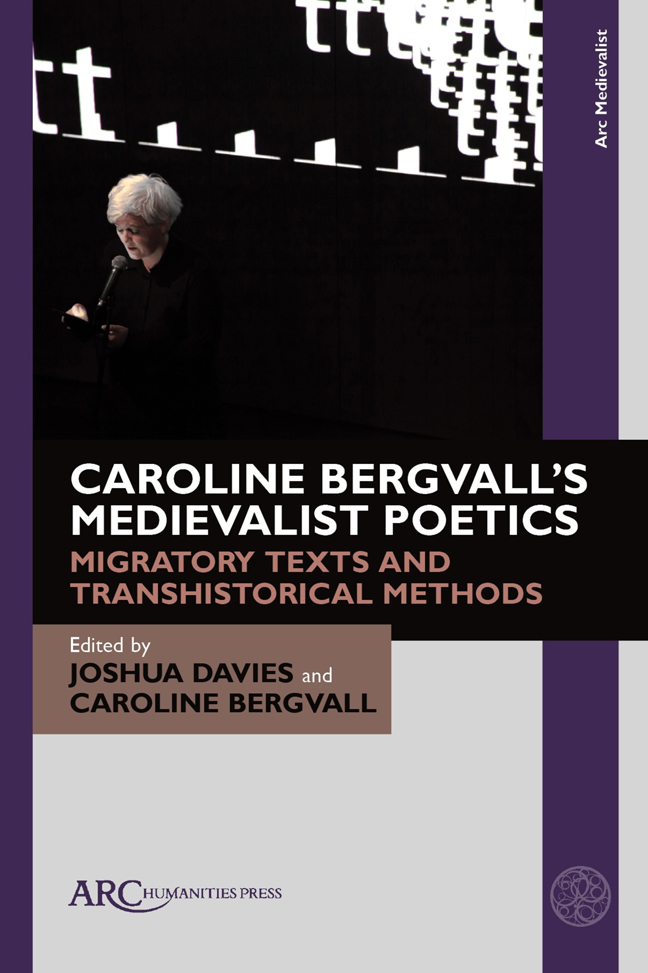Foreword
Published online by Cambridge University Press: 20 February 2024
Summary
THIS WONDERFUL BOOK brings together writers and teachers inspired by Caroline Bergvall and invites new people, from all over, to the party. Bringing together is a key Carolingian trait. In her work peculiar dialects, strange voices, dropped aitches, archaic letter forms, not-from-around-these-parts accents, all rub together to compose the space and sound of a planet. For there is a strong sense of planetarity in Caroline’s essays and voicings: a common home, over-worked, over-heated, crossed by desperate people in small boats. But there is also the great joy of encounter, extending across both space (Caroline is much fascinated by migrating birds, and birdsong) and time: each English sentence, for Caroline, as accentuated through her medi eval trilogy (Meddle English, 2011; Drift, 2014; Alisoun Sings, 2019), drops anchor a thousand years deep, moored to meanings and etymo logical tales still drifting through time: sadde, sad; sely, silly; no thing, nothing; dent-de-lion, dandelion; dayeseye, daisy.
I first met Caroline in late July 2006 at the New Chaucer Society meeting in New York City. We had commissioned a number of poets to offer us, and a wider NYC public, something, anything, Chaucerian. These included my brilliant Penn colleague Charles Bernstein—with whom, given his mercurial, decalcifying, coinage-prone way with lan-guage, I felt, qua mother tongue medi evalist, strange, alpha and omega rapport. Charles gave us Chaucer in Brooklynese (see further below, Chapter 20), discovering, like the bard of Southwark before him, that if “cloisters” appear in a rhyming position, “oysters” must soon be served. Charles also provided first contact with Caroline. And Caroline, at that NYC meeting, first publicly meddled with Middle English in a creative process that, we hope, is not yet done. Bergvall is willing to be difficult, when needed, taking arms against a sea of facile language, of officialese, of putting green pablum. So too Charles Bernstein, in his Attack of the Difficult Poems (2011), a book deemed, by Tan Lin, “highly unsuitable (not suitable) for National Poetry Month.”
Two thousand and six, the year of the NCS conference in NYC and of Caroline’s first public engagement with Chaucer, was a heady moment. Almost five years on from 9/11, and innocent of decline to come in 2007 and fall in 2008, our Chaucerian convo, our biggest conference ever, was reaching heady highs of cultural selfconfidence.
- Type
- Chapter
- Information
- Caroline Bergvall's Medievalist PoeticsMigratory Texts and Transhistorical Methods, pp. xi - xviPublisher: Amsterdam University PressPrint publication year: 2023

